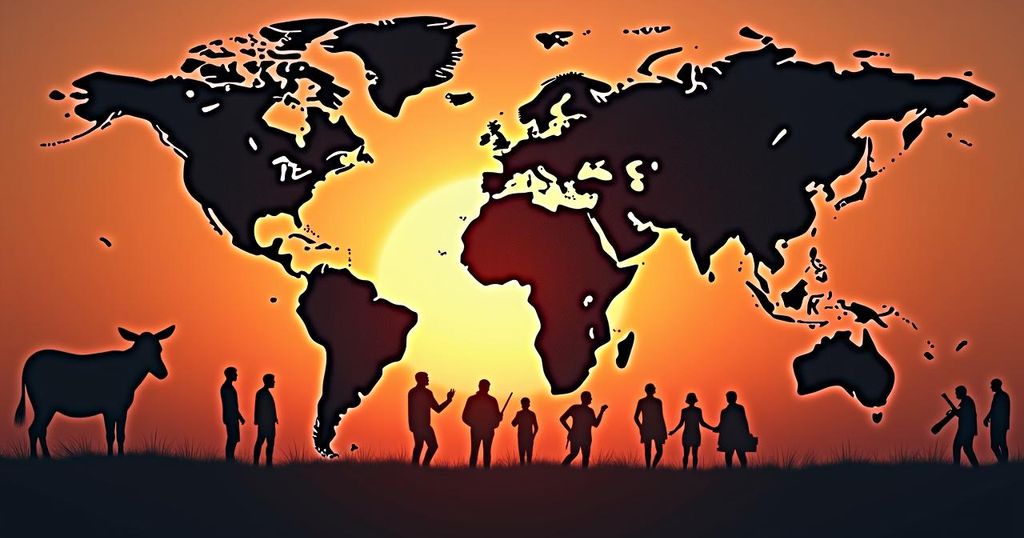Mpox cases are on the rise in 15 African countries, with significant outbreaks mainly in the Democratic Republic of Congo and Burundi. The WHO reports over 6,580 confirmed cases and nearly 32,000 suspected cases this year, with 844 reported deaths among suspected cases. Global leaders are calling for more vaccines and support, including a $500 million commitment and 1 million vaccine doses from the U.S. government.
As mpox cases continue to escalate on the African continent, public health officials and global leaders are increasingly alarmed and emphasize the necessity for enhanced efforts to manage the ongoing viral outbreak. Fifteen countries are currently identified as experiencing active outbreaks, with Morocco being the most recent to report a case. According to Samuel Boland, the mpox incident manager at the World Health Organization (WHO) regional office for Africa, the Democratic Republic of Congo and Burundi account for nearly 90 percent of confirmed cases, although additional reports have emerged from several other nations including Cameroon, Central African Republic, Nigeria, Cote D’Ivoire, Republic of Congo, Liberia, Uganda, Kenya, Gabon, Rwanda, South Africa, and Guinea. Boland elaborated that two distinct clades of the virus have been identified: Clade I, previously known as the Congo Basin clade, and Clade II, formerly recognized as the West African clade. The disease, which was formerly referred to as monkeypox, is known to spread through close contact between individuals and, in some instances, through objects or surfaces that have been in contact with an infected person. Symptoms typically include fever, rash, and swollen lymph nodes. This year alone, there have been 6,580 confirmed cases of mpox, with a significant number of suspected cases reported at nearly 32,000. Among these suspected cases, there have been 844 fatalities, while in the realm of confirmed cases this year, unfortunately, 32 individuals have lost their lives. During a recent virtual briefing, Jean Kaseya, director-general of the Africa Centres for Disease Control and Prevention, voiced deep concern, stating that mpox is not under control within the continent. He noted that vaccine donations, while occurring, remain inadequate to contain the outbreak, with commitments of around 4 million doses made thus far. Kaseya insisted that a greater supply of vaccines is urgently required. In an address to world leaders at the United Nations General Assembly on September 24, 2024, United States President Joe Biden underscored the urgency of addressing the mpox outbreak in Africa. He declared, “We are prepared to commit $500 million to help African countries prevent and respond to mpox and to donate 1 million doses of mpox vaccine now.” Although no specific timeline for the vaccine distribution has been provided, Biden assured that these resources would be allocated through bilateral partnerships and multilateral channels. Furthermore, Boland emphasized that addressing this mpox outbreak necessitates a comprehensive approach within the public health framework, including heightened surveillance efforts, case investigations, and active community engagement to encourage reporting of cases. He underscored the importance of infection control, case management, and vaccination as critical components of this strategy.
Mpox, previously known as monkeypox, is an infectious viral disease characterized by symptoms such as fever, rash, and swollen lymph nodes. Its transmission primarily occurs through close physical contact; however, it can also spread via surfaces or objects that have had contact with infected individuals. The current outbreak is notably severe in Africa, particularly in the Democratic Republic of Congo (DRC) and Burundi. The World Health Organization has recognized the need for enhanced vaccination, surveillance, public health interventions, and community involvement to combat the spread of the virus effectively. This situation has attracted significant attention from health organizations and government leaders, highlighting the urgent need for increased resources and coordinated responses.
The rising cases of mpox across Africa necessitate immediate and robust public health interventions, as well as increased vaccine availability to counteract this outbreak. With 15 countries currently facing active outbreaks and extensive efforts underway, it remains imperative for international leaders and health organizations to collaborate and provide support to the affected regions. Enhanced surveillance, community engagement, and comprehensive strategic planning are essential for controlling the spread of the virus and safeguarding public health.
Original Source: www.voanews.com







